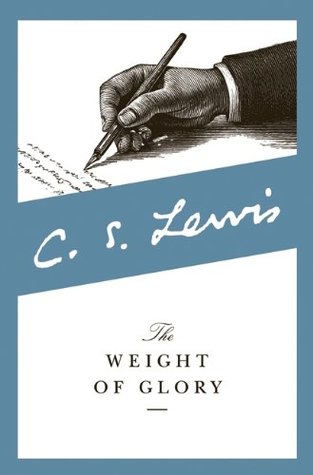More on this book
Community
Kindle Notes & Highlights
Indeed, if we consider the unblushing promises of reward and the staggering nature
of the rewards promised in the Gospels, it would seem that Our Lord finds our desires not too strong, but too weak. We are half-hearted creatures, fooling about with drink and sex and ambition when infinite joy is offered us, like an ignorant child who wants to go on making mud pies in a slum because he cannot imagine what is meant by the offer of a holiday at the sea. We are far too easily pleased.
booklady liked this
To please God…to be a real ingredient in the divine happiness…to be loved by God, not merely pitied, but delighted in as an artist delights in his work or a son—it seems impossible, a weight or burden of glory which our thoughts can hardly sustain. But so it is.
It is a serious thing to live in a society of possible gods and goddesses, to remember that the dullest and most uninteresting person you can talk to may one day be a creature which, if you say it now, you would be strongly tempted to worship, or else a horror and a corruption such as you now meet, if at all, only in a nightmare.
There are no ordinary people. You have never talked to a mere mortal. Nations, cultures, arts, civilisations—these are mortal, and their life is to ours as the life of a gnat.
But it is immortals whom we joke with, work with, marry, snub, and exploit—immortal horrors or everlasting splendours.
Failures will be forgiven; it is acquiescence that is fatal, the permitted, regularised presence of an area in ourselves which we still claim for our own. We may never, this side of death, drive the invader out of our territory, but we must be in the Resistance, not in the Vichy government. And this, so far as I can yet see, must be begun again every day. Our morning prayer should be
that in the Imitation: Da hodie perfecte incipere—grant me to make an unflawed beginning today, for I have done nothing yet.


